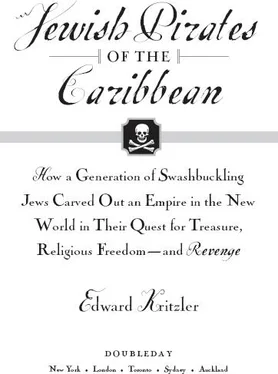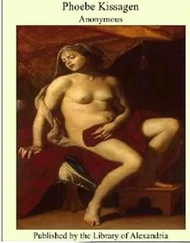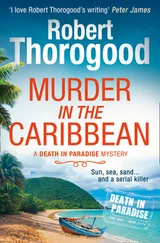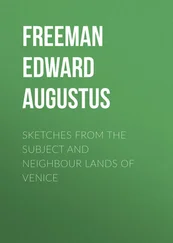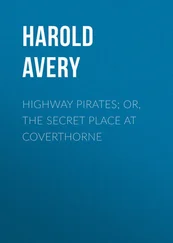Edward Kritzler - Jewish Pirates of the Caribbean
Здесь есть возможность читать онлайн «Edward Kritzler - Jewish Pirates of the Caribbean» весь текст электронной книги совершенно бесплатно (целиком полную версию без сокращений). В некоторых случаях можно слушать аудио, скачать через торрент в формате fb2 и присутствует краткое содержание. Год выпуска: 2008, ISBN: 2008, Издательство: Knopf Doubleday Publishing Group, Жанр: Старинная литература, на английском языке. Описание произведения, (предисловие) а так же отзывы посетителей доступны на портале библиотеки ЛибКат.
- Название:Jewish Pirates of the Caribbean
- Автор:
- Издательство:Knopf Doubleday Publishing Group
- Жанр:
- Год:2008
- ISBN:9780385528368
- Рейтинг книги:3 / 5. Голосов: 1
-
Избранное:Добавить в избранное
- Отзывы:
-
Ваша оценка:
- 60
- 1
- 2
- 3
- 4
- 5
Jewish Pirates of the Caribbean: краткое содержание, описание и аннотация
Предлагаем к чтению аннотацию, описание, краткое содержание или предисловие (зависит от того, что написал сам автор книги «Jewish Pirates of the Caribbean»). Если вы не нашли необходимую информацию о книге — напишите в комментариях, мы постараемся отыскать её.
Jewish Pirates of the Caribbean — читать онлайн бесплатно полную книгу (весь текст) целиком
Ниже представлен текст книги, разбитый по страницам. Система сохранения места последней прочитанной страницы, позволяет с удобством читать онлайн бесплатно книгу «Jewish Pirates of the Caribbean», без необходимости каждый раз заново искать на чём Вы остановились. Поставьте закладку, и сможете в любой момент перейти на страницу, на которой закончили чтение.
Интервал:
Закладка:
1657: In England, London Jews open a synagogue in a house on Creechurch Lane.
1657: Buccaneers of Tortuga invited to call Jamaica home.
1661–1662: Charles on throne rejects petitions to expel Jews; backs “gold finding” Jews.
1663: Six Jews arrive in Jamaica “on a royal mission to find a gold mine known to them.”
1664: Jews banished; mission declared a fraud and Isaac Israel ordered to return king’s necklace.
1664: New Amsterdam becomes New York.
1665: New York Jews obtain freedom of worship and other advantages of English citizenship.
1670: Morgan takes Panama; Madrid treaty recognizes English conquest; Cohen back in Jamaica.
1671: Cohen buys land in isolated river valley.
1672: Merchants try to expel Jews; Beeston charges Jews are aliens and seizes a Jew’s ship; Charles establishes Royal African Company for slave trade.
1674: Surinam Jews petition to come to Jamaica.
1675: Cohen vs. Cohen: Brothers’ Revealing Lawsuit.
1675: Grand opening of Amsterdam synagogue, still used today.
NOTES AND SOURCES
Introduction
1. Fernand Braudel and Sian Reynolds (trans.), The Mediterranean and the Mediterranean World in the Age of Philip II (Berkeley, Calif.: University of California Press, 1996), 823.
2. Antonia Fraser, Cromwell: The Lord Protector (New York: Grove Press, 2001), 566.
3. Arnold Wiznitzer, Jews in Colonial Brazil (New York: Columbia University Press, 1960), 60.
Chapter One: Columbus and Jamaica’s Chosen People
1. Kirkpatrick Sale, The Conquest of Paradise (New York: Alfred A. Knopf, 1990), 192n: The youths outnumbered adult seamen fifty-seven to forty-two; most stayed loyal to Columbus, but it is not known how many were conversos.
2. Quoted in Salvador de Madariaga, Christopher Columbus, Being the Life of the Very Magnificent Lord Don Cristobal Colon (New York: Christopher Columbus Publishing, 1967), 187.
3. S. E. Morison, Admiral of the Ocean Sea (Boston: Little, Brown, 1942), quotes the royal chronicler’s account of Santangel and his plea to the queen.
4. Simon Wiesenthal, Sails of Hope: The Secret Mission of Christopher Columbus (New York: Macmillan, 1973), 166.
5. http://www.sephardicstudies.org/decree.htm
6. M. Hirsch Goldberg, The Jewish Connection (New York: Steimatzky/Shapolsky Publishing of North America, 1986), 87. In the Zohar (Book of Splendor), Moses de León (1250–1305) opined almost two hundred years before Columbus that “the earth revolves like a ball…when it is day on one-half of the globe, night reigns over the other half.”
7. Zvi Dor-Ner, Columbus and the Age of Discovery (New York: William Morrow, 1991), 104, 105.
8. Benjamin Keen, ed. and trans., The Life of Admiral Christopher Columbus by His Son Ferdinand (New Brunswick, N.J.: Rutgers University Press, 1992), 264–65. Fernando’s description comes from his book, written years later when he was fifty as a brief in support of his family’s lawsuit to recover rights granted Columbus: “No longer able to keep the ships afloat, we ran them ashore as far as we could, grounding them close together board and board, and shoring them up on both sides so they could not budge.”
9. Ibid., 241–57.
10. Padron Morales, Spanish Jamaica, trans. Patrick E. Bryan (Kingston, Jamaica: Ian Randle Publishers, 2003), 20: Fernando writes the view of St. Ann’s Bay from the caravel deck “seemed to [Columbus] the most beautiful of all those he had seen in the Indies.”
11. John Boyd Thacher, Christopher Columbus: His Life, His Work, His Remains As Revealed by Original Printed and Manuscript Records, vol. 2 (New York: G. P. Putnam’s Sons, 1904), 633–34: A copy of the letter was found among Spanish papers in 1655 when the English captured Jamaica. The original, never recovered, was said to belong to a Jamaican Jew whose ancestor was marooned with Columbus.
12. Ibid., 634n.
13. Ibid., 635n.
14. Ibid., 635n.
15. Washington Irving, The Life and Voyages of Christopher Columbus, vol. 2 (New York: G. P. Putnam’s Sons, 1896), 582.
16. Ibid., 634.
17. Samuel Eliot Morison, Journals and Other Documents on the Life and Voyages of Christopher Columbus (New York: Heritage, 1963), 192.
18. Washington Irving, The Life and Voyages of Christopher Columbus, vol. 2, 614; Columbus, when questioned about the gold of Veragua, maintained he brought home no treasure, because, as he wrote, “I would not rob or outrage the country since reason requires that it should be settled, and then the gold may be procured without violence.”
19. At the start of Columbus’s voyage two years before, Ovando refused him shelter in Hispaniola despite an approaching hurricane, and when the rescue ship arrived back in Hispaniola, Ovando freed the Poras brothers and threatened to punish the loyalists who had slain some of the rebels.
20. Irving, The Life and Voyages of Christopher Columbus, vol. 2, 567; Irving quotes his contemporary biographer Bartolome de Las Casas, The History of the Admiral, lib. 2, cap. 32: “To cheer and comfort those who were loyal [Columbus] promised on his return to Spain to throw himself at the feet of the Queen, and represent their loyalty and obtain for them rewards.”
21. Keen, The Life of Admiral Christopher Columbus, 272–73: the full story of the eclipse. A copy of R. Abraham Zacuto’s tables with the marginalia of Columbus is in the Colombian Library in Portugal.
22. William B. Goodwin, Spanish and English Ruins in Jamaica (Boston: Meador Publishing Co., 1938), 13.
23. Clarendon State Papers, vol. 1, Bodleian Library, Oxford University, 14, no. 237. Clarendon’s handwritten translation of a spy’s “secret discoveries” to the Duke of Buckingham in 1623 to encourage him to conquer Jamaica assisted by the island’s Portugals.
24. Hugh Thomas, Rivers of Gold: The Rise of the Spanish Empire from Columbus to Magellan (New York: Random House, 2003), 210. Juan d’Esquivel’s parents were the conversos Pedro d’Esquivel and Constanza Fernández de Arauz.
25. Myrna Katz Frommer and Harvey Frommer, “Melilla: A Bit of Spain That Jews Never Left,” The Philadelphia Jewish Exponent, August 29, 1996. Since 1497, Jews have been living in Melilla, having never been forced to choose between exile and conversion, and until many left after World War II, each extended family had its own synagogue.
26. Irving, The Life and Voyages of Christopher Columbus, vol. 2, 587.
27. Morales, Spanish Jamaica, 18. Francisco Poras would return to hold a post in government. The Poras brothers were themselves conversos and had been placed on the fourth voyage by Columbus at the request of the treasurer of Castile, Alonso de Morales, who was amorously involved with their aunt.
28. Irving, The Life and Voyages of Christopher Columbus, vol. 2, appendix, 642. “Ferdinand had been receiving reports that the mansion Diego was building was actually a fortress and Diego designed to make himself ‘sovereign of the island.’” Reportedly Diego paced back and forth on the patio “awaiting news from Esquivel of the discovery of gold in Jamaica [that] he might declare himself Emperor of the Americas.” Irene A. Wright, “The Early History of Jamaica (1511–1536),” The English Historical Review 36, no. 141 (January 1921), 73. The king writes Diego (February 23, 1512) that he is informed that Esquivel has found more gold than he reported.
29. Frank Cundall and Joseph Pietersz, Jamaica Under the Spaniards, abstracted from the Archives of Seville (Kingston: Institute of Jamaica, 1919), 2.
Читать дальшеИнтервал:
Закладка:
Похожие книги на «Jewish Pirates of the Caribbean»
Представляем Вашему вниманию похожие книги на «Jewish Pirates of the Caribbean» списком для выбора. Мы отобрали схожую по названию и смыслу литературу в надежде предоставить читателям больше вариантов отыскать новые, интересные, ещё непрочитанные произведения.
Обсуждение, отзывы о книге «Jewish Pirates of the Caribbean» и просто собственные мнения читателей. Оставьте ваши комментарии, напишите, что Вы думаете о произведении, его смысле или главных героях. Укажите что конкретно понравилось, а что нет, и почему Вы так считаете.
